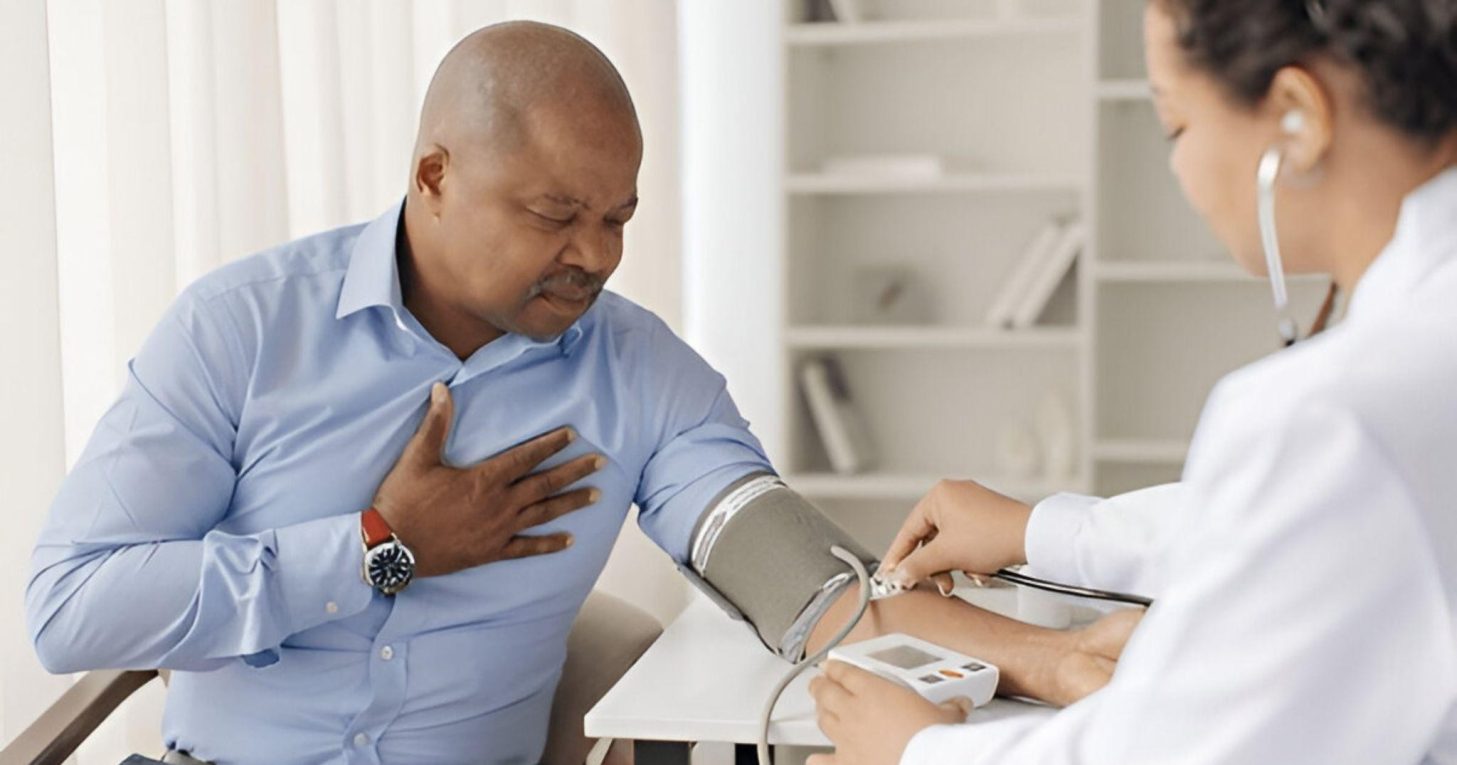Many people think high blood pressure (hypertension) shows obvious signs. The truth? It’s often a silent condition — you might not feel anything at all until it causes serious complications.
That’s why hypertension is often called a “silent killer.” It quietly damages your heart, blood vessels, kidneys, and brain over time. In fact, many people discover they have high blood pressure only after a health crisis like a heart attack or stroke.
In this blog, we’ll explore the symptoms of high blood pressure, when to get checked, and why early detection is critical to maintaining heart health.
Also Read: The Role of Hormones in Obesity: How Endocrine Disorders Influence Weight Gain
What Is High Blood Pressure?
Blood pressure is the force of blood pushing against your artery walls. When this pressure stays consistently high, your heart has to work harder to pump blood. Over time, this extra strain can lead to heart disease, stroke, kidney damage, and other complications.
Why Is High Blood Pressure Dangerous?
Chronic high blood pressure damages the inner lining of arteries. This leads to:
- Narrowing and hardening of arteries (atherosclerosis)
- Increased risk of heart attack and stroke
- Damage to the kidneys, eyes, and brain
Over time, your heart may enlarge and weaken — a condition called left ventricular hypertrophy — which increases your risk of heart failure.
Early Symptoms of High Blood Pressure
While many people have no symptoms at all, others may experience subtle signs. These signs may come and go, or be attributed to other causes, making it harder to connect them to high blood pressure.
Possible symptoms include:
- Frequent headaches, especially in the morning
- Blurred or double vision
- Shortness of breath even with light activity
- Dizziness or lightheadedness
- Fatigue or confusion
- Chest discomfort or irregular heartbeat
- Nosebleeds, especially spontaneous and recurring
- Blood in the urine (in severe or prolonged cases)
It’s important to note: these symptoms often appear when blood pressure has already reached dangerous levels.
Also Read: Why Does My Knee Hurt? Top 7 Causes and When to See a Doctor
Hypertensive Crisis: A Medical Emergency
A hypertensive crisis occurs when blood pressure spikes suddenly and severely. This is a medical emergency and requires immediate care.
Symptoms may include:
- Severe chest pain
- Severe headache with blurred vision
- Difficulty speaking or confusion
- Seizures
- Sudden shortness of breath
Don’t wait — if you or someone around you has these symptoms, seek emergency care immediately.
How High Blood Pressure Affects Your Heart
Prolonged high blood pressure contributes directly to heart disease, the leading cause of death worldwide.
It increases your risk of:
- Coronary artery disease (due to narrowed arteries)
- Heart failure (due to thickened heart muscle)
- Arrhythmias (irregular heartbeat)
- Heart attack (from reduced oxygen supply)
Maintaining healthy blood pressure is one of the most effective ways to protect your heart and reduce your long-term health risks.
Also Read: Benign Tumors Explained: Key Facts and Insights You Should Know
When Should You Get Checked?
You should get your blood pressure checked:
- At least once a year after age 30
- More often if you have a family history of hypertension or heart disease
- Immediately if you experience any of the symptoms listed above
Routine checks are critical — especially if you’re a working professional dealing with stress, poor sleep, and long hours of sitting.
Prevention and Lifestyle Tips
Even if you don’t have high blood pressure now, adopting a heart-healthy lifestyle can reduce your risk in the future.
Tips for a Healthy Heart:
- Eat a low-sodium, high-fiber diet with fruits, vegetables, and whole grains
- Maintain a healthy weight
- Exercise for heart health — 30 minutes of moderate activity most days
- Quit smoking and limit alcohol
- Manage stress through breathing exercises, yoga, or mindfulness
Keeping your blood pressure in check is one of the most important steps in heart disease prevention.
Also Read: Sciatica and Nerve Pain: What’s Causing It and How to Treat It?
Don’t Ignore the Signs
Hypertension may not always shout — but it whispers early warnings. If you’re experiencing any symptoms, or if you’re over 40 and haven’t had a recent heart health checkup, it’s time to act.
Visit Omega Hospitals to consult with experienced cardiologists who can guide you through diagnosis, treatment, and long-term heart care. The doctors at Omega focus on early detection and personalized care to help reduce your risk of heart-related complications.
Schedule your checkup today and take a step toward better heart health.

